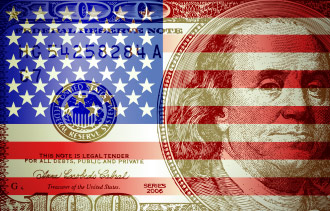Corporations: How To Reach & Work With Veteran-Owned Businesses

By Debbie Gregory.
Veteran-owned small businesses have a lot to offer, to their customers, their communities, and to prospective employees. Despite the focus and push for veteran employment through diversity and inclusion, there needs to be greater focus on supplier diversity for veteran owned businesses. I also believe that corporations need to integrate their Supplier Diversity, Inclusion and Diversity and Veteran Affinity and mentorship groups for real success.
Some interesting stats according to the Small Business Administration (SBA):
- Veterans are a key part of any supplier diversity program.
- Veterans are one of the most successful groups of business owners in America.
- 1 in 10 businesses are veteran-owned.
- Veterans are 30% more likely to hire other veterans.
- 5% of VOSB’s operate in the professional, scientific, technical services industries, and the construction industry.
- 1 % are in wholesale and retail trade.
Don’t Just Hire Veterans – Do Business with Them! There are many good reasons to work with veteran-owned businesses.
- Know the Rules
The federal government requires 3% of the total value of all prime contract and subcontract awards go to Service-Disabled Veteran Owned Small Businesses (SDVOSBs).
- Finding Veteran-Owned Businesses
The very best way to find a veteran-owned business is to search connect with and sponsor trade associations such as VAMBOA with huge memberships of Veteran Business Owners. VAMBOA, the Veterans and Military Business Owners Association can connect the RFIs and RFPs of your corporation with our network of over 7,000 members.
I believe that time is at a premium for small Veteran and Service-Disabled Businesses as it is for the corporations that are required to have a diverse supplier network. Instead of spending the time of staff and the expense of attending conference, become a VAMBOA sponsor and we will place your message online to our large membership and on social media with almost a quarter of a million fans and followers.
- Do Your Research
There are good vendors and bad ones. Simply having a federal VOSB/SDVOSB certification does not mean that the vendor is experienced or any good at their job. Always ask for work examples or references as you would with any vendor, supplier, or potential employee.
Any company can slap a “veteran-owned” sticker on their location or product but some may not be honest, and fraud is a concern. Most states will certify a business as VOSB/SDVOSB if they have their federal VA certification. Before doing business make sure that you request a copy of that certification.
- Get Management on Board
You will need to gain the support of your senior management in order to add veteran-owned businesses to your approved supplier lists. Veteran-owned businesses now provide almost every type of product or service you can think of. Make sure the entire company is on the same page about including VOSB/SDVOSBs. Veterans hit all the boxes as they are diverse group including minorities, women and disabled.
- Educate Your Purchasing and Contract Departments
Once you are sure that you have clearly outlined your goals for including veterans in your diversity supplier efforts, provide well researched lists to your key personnel of veteran-owned businesses to help jump-start the process. The most common internal pushback is lack of access to known veteran-owned businesses. If you cannot find them – it is hard to work with them. Make it as easy as possible for your employees to include VOSB/SDVOSBs when your company is looking for a vendor or supplier. The very best way is to become a VAMBOA sponsor. Contact us. - Tipping the Bidding Scales in Your Favor
Sometimes working with veteran-owned businesses can bring you a competitive edge when bidding a job. Certain agencies will give preference to companies that utilize VOSB/SDVOSBs. Each federal agency sets participation goals for small businesses in procurement contracts. Regulations require Federal purchases over $10,000, but less than $250,000 to automatically reserve, or set-aside, a portion of the contract monies for small businesses.
Working with VOSB/SDVOSB can help you, the VOSB/SDVOSB you work with, and our economy in general. Next time you need a new supplier, vendor, or partner it may be in your best interest to find one being run by a vet. Contact VAMBOA.
















